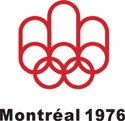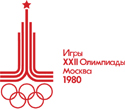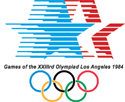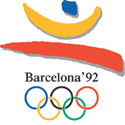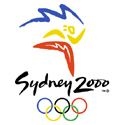
| Olympics | Ancient History | Modern History | India in Olympics | Indian Achievers | 2004 | 2008 | 2012 | 2016 |
Modern History of Olympics
1956 Melbourne, Australia
|
Venue : Melbourne, Australia |
|||
|
Nations : 72 |
|||
|
Events : 145 |
|||
|
Winner : USSR with 98 points |
|||
|
Medals |
Gold |
Silver |
Bronze |
|
USSR |
37 |
29 |
32 |
|
USA |
32 |
25 |
17 |
|
Australia |
13 |
8 |
14 |
|
Opening Date : 22 November 1956 |
|||
|
Athletes : 3,314 |
|||
|
|
|
||
|
Medal |
Emblem |
||
The 1956 Olympic Games at Melbourne were the first Olympics to be held in the southern hemisphere. For the first and only time, due to the stringent animal quarantine laws, the equestrian events was detached from the main Games and held at Stockholm, Sweden almost five months before the start of the actual Games. Laszlo Papp of Hungary became the first boxer to win three gold medals. The U.S. basketball team put on the most dominant performance in Olympic history by scoring more than twice as much as their opponents and winning each of their games by at least 30 points. In weightlifting, ties are broken by awarding the higher place to the athlete with the lower body weight. For the first time in the Olympics, athletes entered en masse - a symbol of global unity - at the closing ceremony.
1960 Rome, Italy
|
Venue : Rome, Italy |
|||
|
Nations : 83 |
|||
|
Events : 150 |
|||
|
Winner : USSR with 103 points |
|||
|
Medals |
Gold |
Silver |
Bronze |
|
USSR |
43 |
29 |
31 |
|
USA |
34 |
21 |
16 |
|
Italy |
13 |
10 |
13 |
|
Opening Date : 25 August 1960 |
|||
|
Athletes : 5,338 |
|||
|
|
|
||
|
Medal |
Emblem |
||
Italy created a mixture of modern and ancient sites to hold the contests in 1960 Olympic Games. It was the first Olympics to be fully covered by television. An Olympic Stadium and a Sports Palace were built for the Games. They made the most of their dramatic history, holding the wrestling competition in the Basilica of Maxentius. Paul Elvstrom of Denmark won a fourth consecutive individual gold medal in the single-handed dinghy class yachting. In 100m freestyle swimming event, American Lance Larson who was timed at one-tenth faster than Australian John Devitt, was still placed second despite the slow-motion film indicating that the former was first. Sante Gaiardoni of Italy became the only cyclist in Olympic history to win both the time trial and the match sprint events. Danish cyclist Knut Jensen collapsed and died during the Games.
1964 Tokyo, Japan
|
Venue : Tokyo, Japan |
|||
|
Nations : 93 |
|||
|
Events : 163 |
|||
|
Winner : USA with 90 points |
|||
|
Medals |
Gold |
Silver |
Bronze |
|
USA |
36 |
26 |
28 |
|
USSR |
30 |
31 |
35 |
|
Japan |
16 |
5 |
8 |
|
Opening Date : 10 October 1964 |
|||
|
Athletes : 5,151 |
|||
|
|
|
||
|
Medal |
Emblem |
||
The 1964 Olympic Games at Tokyo were the first to be held in Asia. The Olympic flame was carried into the stadium by a young runner Yoshinori Sakai, who was born in Hiroshima on the day the atom bomb was dropped in the city. Judo and volleyball were introduced to the Olympic Events. This Olympic Games debuted the first use of computers to keep results. Don Schollander of America became the first swimmer to win four gold medals in a single game. Soviet gymnast Larissa Latynina between 1956 and 1964 won the maximum 18 medals, including nine golds during her career. The 1964 Games saw the first Olympic wedding, as two Bulgarian athletes, long jumper Diana Yorgova and gymnast Nikolai Prodanov, exchanged vows at a ceremony in the Olympic Village.
1968 Mexico city, Mexico
|
Venue : Mexico City, Mexico |
|||
|
Nations : 112 |
|||
|
Events : 172 |
|||
|
Winner : USA with 107 points |
|||
|
Medals |
Gold |
Silver |
Bronze |
|
USA |
45 |
28 |
34 |
|
USSR |
29 |
32 |
30 |
|
Japan |
11 |
7 |
7 |
|
Opening Date : 12 October 1968 |
|||
|
Athletes : 5,516 |
|||
|
|
|
||
|
Medal |
Emblem |
||
The 1968 Olympics Games held at Mexico City was a controversial one because of the city's high altitude. Many athletes felt that this affected the events, helping some athletes and hindering others. Mexican hurdler Enriqueta Basilio became the first woman to light the cauldron at the Opening Ceremony. The Mexico City Olympics was the first Summer Games to conduct sex testing for women. Japan who won a bronze medal in the soccer competition were the first and only Asian team to win a medal and first non-European team to do so in 40 years. This Olympic Games saw the first drug disqualification, when Swedish entrant in the modern pentathlon, Hans-Gunnar Liljenwall, tested positive for excessive alcohol. Though these Games were filled with political statements, they were very popular.
1972 Munich, West Germany
|
Venue : Munich, West Germany |
|||
|
Nations : 121 |
|||
|
Events : 195 |
|||
|
Winner : USSR with 99 points |
|||
|
Medals |
Gold |
Silver |
Bronze |
|
USSR |
50 |
27 |
22 |
|
USA |
33 |
31 |
30 |
|
German Democratic Republic |
20 |
23 |
23 |
|
Opening Date : 26 August 1972 |
|||
|
Athletes : 7,134 |
|||
|
|
|
|
|
|
Medal |
Emblem |
Mascot - Waldi |
|
The 1972 Olympic Games held at Munich were the largest yet, setting records in all categories. The theme for this Olympics was the spread of peace, but within 10 days of the Games Palestine terrorists struck in the Village by taking Israeli team as hostage and later killing them. It was during this Olympics, the triangulation device to measure distances in the athletics throwing events was introduced for the first time. For the first time the oath for the judges was introduced in this Olympics. Archery was reintroduced to the Olympic programme after a 52-year absence and handball after a 36-year absence. Whitewater (or slalom) canoeing was included for the first time. American swimmer Mark Spitz won a record of seven gold medals. For the first time since 1920, a team from outside the Indian sub-continent won the field hockey title. The 1972 Games were also the first to have a named mascot 'Waldi' the dachshund.
1976 Montreal, Canada
|
Venue : Montreal, Canada |
|||
|
Nations : 92 |
|||
|
Events : 198 |
|||
|
Winner : USSR with 125 points |
|||
|
Medals |
Gold |
Silver |
Bronze |
|
USSR |
49 |
41 |
35 |
|
German Democratic Republic |
40 |
25 |
25 |
|
USA |
34 |
35 |
25 |
|
Opening Date : 17 July 1976 |
|||
|
Athletes : 6,084 |
|||
|
|
|
|
|
|
Medal |
Emblem |
Mascot - Amik |
|
Elaborate security arrangements were made in the 1976 Olympic Games held at Montreal because of the terrorist attack in the 1972 Games at Munich. The Olympic flame was brought into the stadium by two 15-year olds, a boy and a girl, which signified Canada's joint heritage. Women’s events were included for the first time in basketball, rowing and team handball. This Olympic saw the rise of the fourteen-year-old Romanian gymnast Nadia Comaneci who won three gold medals. Miklos Nemeth of Hungary won the javelin throw to become the first son of an athletics gold medallist to win a gold of his own. West Germany's Alwin Schockemohle became the only third rider in the history of the Games to win a jumping title without any faults.
1980 Moscow, Soviet Union
|
Venue : Moscow, Soviet Union |
|||
|
Nations : 80 |
|||
|
Events : 203 |
|||
|
Winner : USSR with 195 points |
|||
|
Medals |
Gold |
Silver |
Bronze |
|
USSR |
80 |
69 |
46 |
|
German Democratic Republic |
47 |
37 |
42 |
|
Bulgaria |
8 |
16 |
17 |
|
Opening Date : 19 July 1980 |
|||
|
Athletes : 5,179 |
|||
|
|
|
|
|
|
Medal |
Emblem |
Mascot - Misha |
|
The 1980 Olympic Games at Moscow was boycotted by the non-communist countries led by the United States, when the Soviet Army invaded Afghanistan in 1979. This reduced the number of participating nations to 80, the lowest number since 1956. Aleksandr Dityatin of Soviet Union earned medals in every men's gymnastics event to become the only athlete ever to win eight medals in one Olympics. Cuban super-heavyweight Teofilo Stevenson became the first boxer to win three titles in a row in the same division. Gerd Wessig became the first male high jumper to break the world record at the Olympics. Zimbabwe competing in the Olympics for the first time were the first winners of the women's field hockey event. In this Olympics, India won the men's hockey event after a gap of 16 years.
1984 Los Angeles, USA
|
Venue : Los Angeles, USA. |
|||
|
Nations : 140 |
|||
|
Events : 221 |
|||
|
Winner : USA with 174 points |
|||
|
Medals |
Gold |
Silver |
Bronze |
|
USA |
83 |
61 |
30 |
|
Romania |
20 |
16 |
17 |
|
Federal Republic of Germany |
17 |
19 |
23 |
|
Opening Date : 28 July 1984 |
|||
|
Athletes : 6,829 |
|||
|
|
|
|
|
|
Medal |
Emblem |
Mascot - Sam |
|
China participated in the1984 Olympics Games held at Los Angeles for the first time since 1932. This Olympic Games was the first to attract widespread sponsorship by private corporations. Joan Benoit who had undergone arthroscopic surgery on her right knee before the Olympic trials, won the inaugural women's marathon and Connie Carpenter-Phinney the first women's cycling road race. Romania was the only country from the Soviet bloc to participate in the 1984 Games. Mary Lou Retton, who received perfect scores in her final two events, became the first American woman to win an individual gold medal in gymnastics. Carl Lewis won both sprints and the long jump and earned a fourth gold in the 4x100m relay.
1988 Seoul, South Korea
|
Venue : Seoul, South Korea |
|||
|
Nations : 159 |
|||
|
Events : 237 |
|||
|
Winner : USSR with 132 points |
|||
|
Medals |
Gold |
Silver |
Bronze |
|
USSR |
55 |
31 |
46 |
|
German Democratic Republic |
37 |
35 |
30 |
|
USA |
36 |
31 |
27 |
|
Opening Date : 17 September 1988 |
|||
|
Athletes : 8,391 |
|||
|
|
|
|
|
|
Medal |
Emblem |
Mascot - Hodori |
|
The 1988 Olympics held at Seoul turned out to be a very large, exciting, and competitive event. The new amateur rule allowed tennis to return to the Olympic Games, not having appeared since 1924. Drug tests resulted in the banishment of several athletes from these Olympic Games. Although the drug disqualification of Canadian sprinter Ben Johnson was the biggest story of the 1988 Olympics, the Seoul Games were highlighted by numerous exceptional performances. East German swimmer Kristin Otto became the first swimmer to win titles at three different strokes in the same Games. For the first time, all the medallists in dressage were women. East German Christa Luding-Rothenburger, who was also a speed skater, earned a silver medal in cycling to become the only person in history to win Winter and Summer medals in the same year.
1992 Barcelona, Spain
|
Venue : Barcelona, Spain |
|||
|
Nations : 169 |
|||
|
Events : 257 |
|||
|
Winner : EUN with 112 points |
|||
|
Medals |
Gold |
Silver |
Bronze |
|
Unified Team (ex. USSR) EUN |
45 |
38 |
29 |
|
USA |
37 |
34 |
37 |
|
Germany |
33 |
21 |
28 |
|
Opening Date : 25 July 1992 |
|||
|
Athletes : 9,356 |
|||
|
|
|
|
|
|
Medal |
Emblem |
Mascot - Cobi |
|
The 1992 Barcelona Games was the first Olympic in three decades without a boycott. South Africa returned to the Olympic fold after a gap of 32 years. Baseball, a demonstration sport in earlier Games, was added to the Olympic events. Belarus gymnast Vitaly Scherbo who won six old medals became the first to win four golds in a single day. The men's basketball was open to all professionals for the first time in the 1992 Games. This allowed the US to sent a 'Dream Team' made up of a number of the most famous U.S. professional basketball players like Magic Johnson, Michael Jordan and Larry Bird. Derartu Tulu of Ethiopia won the 10,000m run to become the first female black African Olympic champion.
1996 Atlanta, USA
|
Venue : Atlanta, United States |
|||
|
Nations : 197 |
|||
|
Events : 271 |
|||
|
Winner : USA with 101 points |
|||
|
Medals |
Gold |
Silver |
Bronze |
|
USA |
44 |
32 |
25 |
|
Russian Federation |
26 |
21 |
16 |
|
Germany |
20 |
18 |
27 |
|
Opening Date : 19 July 1996 |
|||
|
Athletes : 10,318 |
|||
|
|
|
|
|
|
Medal |
Emblem |
Mascot - Izzy |
|
The 1996 Olympics held at Atlanta were the first Games convened without any governmental support. The Atlanta Games are best remembered for their sporting achievements and the cauldron was lit by former heavyweight boxing world champion Mohammad Ali. The Olympic movement was shaken when two people died after a bomb explosion in a city centre park and organisational chaos developed into a recurring nightmare for athletes and spectators alike. Michael Johnson smashed the 200m world record to complete a 200m and 400m double. Nigeria who won the football gold became the first African nation to do so. Carl Lewis of the United States became the third person in Olympic history to win the same individual event four times and the fourth person to earn a ninth gold medal.
2000 Sydney, Australia
|
Venue : Sydney, Australia |
|||
|
Nations : 199 |
|||
|
Events : 300 |
|||
|
Winner : USA with 97 points |
|||
|
Medals |
Gold |
Silver |
Bronze |
|
USA |
40 |
24 |
33 |
|
Russian Federation |
32 |
28 |
28 |
|
People's Republic of China |
28 |
16 |
15 |
|
Opening Date : 15 September 2000 |
|||
|
Athletes : 10,651 |
|||
|
|
|
|
|
|
Medal |
Emblem |
Mascot - Olly, Syd, Millie |
|
The 2000 Olympic Games held at Sydney were the largest yet, with 10,651 athletes competing in 300 events. Cathy Freeman lit the Olympic flame, a symbol of the reconciliation between the native aboriginal inhabitants of Australia and the European settlers. Birgit Fischer earned two gold medals in Kayak to become the first woman in any sport to win medals 20 years apart. Steven Redgrave became the first rower to win gold medals at five consecutive Olympics.
Courtesy :www.olympic.org
















